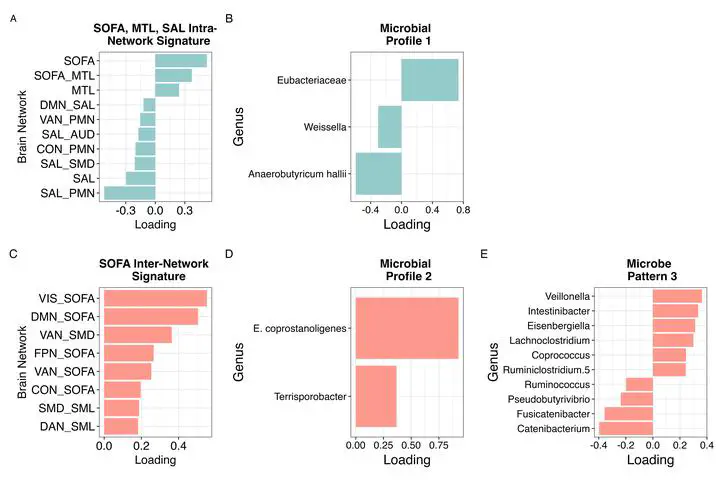Childhood gut microbiome is linked to mental health at school age via the functional connectome

Abstract
The brain and the gut microbiome play critical roles in mental health through the microbiome-gut-brain-axis (MGBA). However, research linking the microbiome to brain function is limited, particularly during child development, when tremendous microbiome plasticity is taking place and many mental health issues, like depression and anxiety, initially manifest.Challenges arise in studying the gut and brain together due to their complex and multidimensional nature, which complicates feature selection and data analysis. Multivariate machine learning techniques, such as sparse partial least squares (sPLS) regression, offer potential solutions by identifying combinations of variables that best explain variance in outcomes.In the current study (N = 55), we used sPLS to identify linear combinations of brain networks (“brain signatures”) at age 6 years that maximally covaried with internalizing symptoms (anxiety and depression) measured at age 7.5 years, before identifying microbe abundances (“microbial profiles”) at age 2 years that maximally covaried with those brain signatures. Finally, we tested whether any microbiome features (microbial profiles or alpha diversity) were indirectly associated with internalizing symptoms via the brain signatures. We found that microbes in the Clostridiales order and Lachnospiraceae family were associated with internalizing symptoms in middle childhood through alterations in connectivity within emotion-related brain networks.